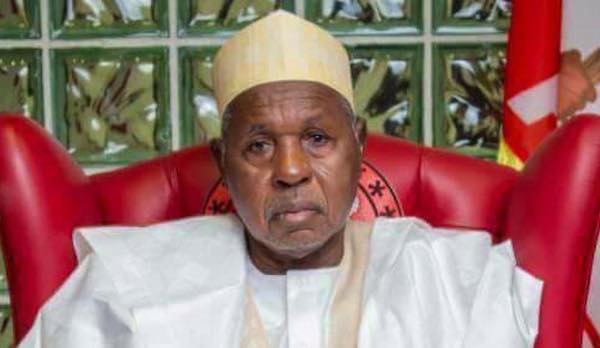News
No ransom was paid for release of kidnapped students —Masari

Katsina State Governor, Aminu Bello Masari has debunked claims that the government paid a huge ransom to secure the release of the 344 kidnapped students of the Government Science Secondary School, in Kankara local government area of the state.
In a late interview with DWTV Hausa Service on Thursday, December 17, Masari said insinuations that ransom was paid for the release of the students from their captors were false.
The students were kidnapped in their school hostels on Friday, December 11, and were released on Thursday, 17, after six days in captivity.
When the interviewer ask the governor if ransom was paid before the release of the boys, he replied:
“I insist we did not pay any ransom to the kidnappers, it was purely negotiation.
Read also: Coalition of Northern groups stage protest in Katsina over kidnapped students
“Like I stated earlier, those involved in the negotiations include my adviser, some top military and police operatives, members of the Miyeti Allah; they were all involved in the negotiations.
“We do not pay ransom to bandits because if we do that, we would be encouraging them to be more daring.”
Masari also said those who kidnapped the boys were not Boko Haram when the question was thrown at him.
“The kidnappers of the students were bandits who have been disturbing us here in Katsina. They were not Boko Haram.
“The video Boko Haram posted was one of the propaganda they have been using in the past to create fear in people as well as make people think they are still relevant.”
Join the conversation
Support Ripples Nigeria, hold up solutions journalism
Balanced, fearless journalism driven by data comes at huge financial costs.
As a media platform, we hold leadership accountable and will not trade the right to press freedom and free speech for a piece of cake.
If you like what we do, and are ready to uphold solutions journalism, kindly donate to the Ripples Nigeria cause.
Your support would help to ensure that citizens and institutions continue to have free access to credible and reliable information for societal development.






















